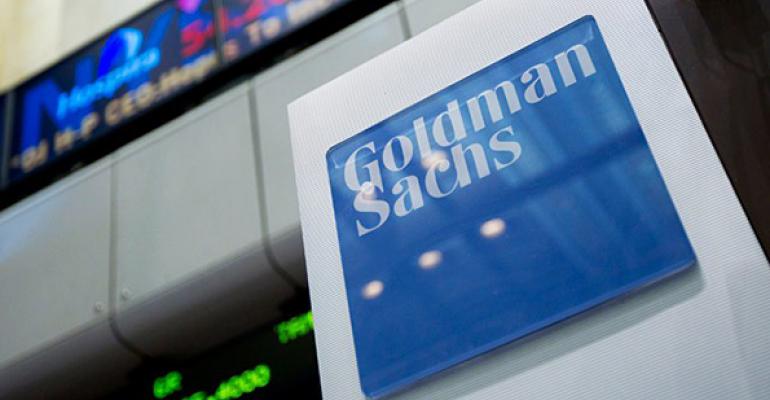By Rachel Evans
(Bloomberg) --Goldman Sachs Group Inc. isn’t known for its largesse, but when it comes to exchange-traded funds the Wall Street giant is almost giving handouts to its customers.
The firm’s asset management arm is now offering some of the cheapest smart-beta funds, including a new one that will charge just 9 basis points for a portfolio with exposure to a basket of large-cap stocks that all have the same allocation, a regulatory filing on Monday shows. That’s less expensive than any other comparable equal-weighted fund, as well as the world’s largest and most traded ETF -- State Street Corp.’s S&P 500 ETF Trust, better known by the ticker SPY.

Building a successful ETF business has become a race to the bottom, as money managing Goliaths from BlackRock Inc. to Vanguard Group Inc. find lower cost products win business. Most of the savings have gone to investors in plain vanilla funds that are cheap to run, but Goldman is now pushing the fee war into more complex smart-beta strategies that shun indexes weighted by market capitalization in favor of other factors.
“Goldman has decided to be the Vanguard of smart beta, undercutting everyone on cost,” said Eric Balchunas, an ETF analyst at Bloomberg Intelligence. “The reason this is happening is that investors are responding -- they aren’t just looking at cost, they’re obsessed with cost.”
It’s not the first time Goldman Sachs has shaken the status quo in ETFs. The firm’s first fund, which was set up two years ago and is skewed toward large stocks with value, momentum, low volatility and quality, also charges 9 basis points. Two BlackRock dividend-focused funds charge less than Goldman Sachs, data compiled by Bloomberg show
Goldman’s new fund charges less than half the fee of a similar ETF run by Guggenheim Partners. That $13.5 billion fund, known by the ticker RSP, has an expense ratio of 20 basis points, data compiled by Bloomberg show. Guggenheim cut the price from 40 basis points in June. Invesco Ltd. is reportedly close to a deal to pay about $1.5 billion for Guggenheim’s ETFs.
To contact the reporter on this story: Rachel Evans in New York at [email protected] To contact the editors responsible for this story: Nikolaj Gammeltoft at [email protected] Eric J. Weiner





